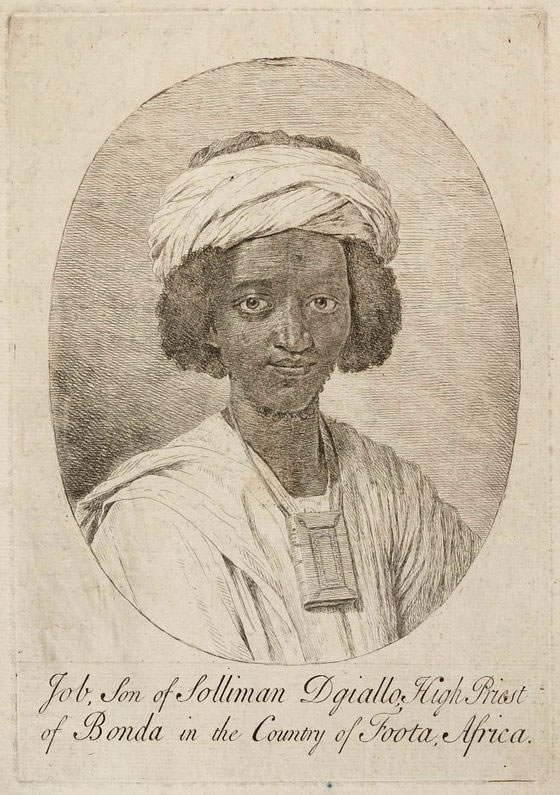Ayuba Suleiman Diallo, who became known in Europe as Job ben Solomon, was from a prominent family of African Muslim religious leaders in the kingdom of Futa (in modern-day Senegal). In 1731, he travelled from Bondu to the Gambia River to sell two slaves at his father’s request. He tried to sell the slaves to a Captain Pike but they could not agree on a price, so Ayuba sold the slaves for cows to another African trader. Ironically, on the way home Ayuba was captured by raiders and sold to the same captain with whom he had recently haggled.
Captain Pike carried Ayuba off to Maryland, one of the British colonies on the North American mainland, where he spent about a year as a slave before returning to Africa via England. Thomas Bluett, a English lawyer, brought him to England in 1733 and the following year published ‘Some Memories of the Life of Job, the Son of the Solomon High Priest of Boonda in Africa’; Who was a slave about two Years in Maryland; and afterwards being brought to England, was set free, and sent to his native Land in the Year 1734’. This is one of the earliest slave-trade narratives.
During his brief stay in England, fashionable society interest in Diallo anticipated that in Omai, the Tahitian who returned from Cook’s second voyage in the early 1770s. Despite a Muslim disinclination to be painted, he was persuaded to sit to the portraitist William Hoare of Bath and chose to be shown in African dress of white robes and turban (round a red cap). Round his neck he wears a copy of the Koran, in a red leather binding or close-fitting bag, of which the suspension thong forms part. This print is from Hoare’s portrait, which frames the sitter in a brown false oval against a slightly lighter brownish background.
© National Maritime Museum, Greenwich, UK
Accession reference: National Maritime Museum, ZBA2711


